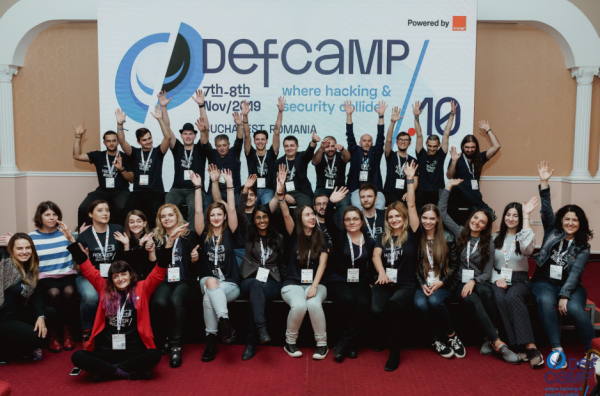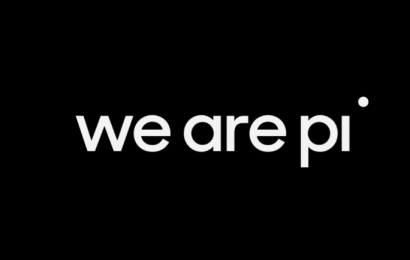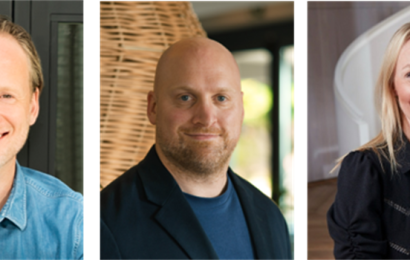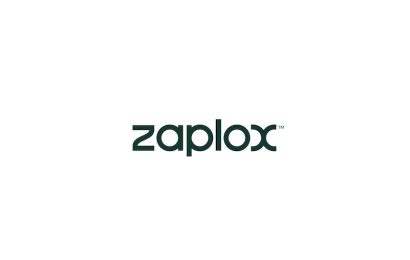DefCamp 2022: AI, cyber / psychological warfare, cybersecurity challenges for regional business landscape & ethical hackers
Making telework policies more and more flexible has increased vulnerabilities in organizations’ infrastructures. The current geopolitical context is putting pressure on companies’ capabilities to defend themselves against increasingly sophisticated cyberattacks. The region’s community of cybersecurity experts bring solutions to today’s challenges at DefCamp, the largest annual hacking and infosec conference in Central and Eastern Europe, on 10-11 November 2022.

Andrei Avădănei, founder of DefCamp.
”Today, cybersecurity is more important than ever, as the number of local cyberattacks has increased significantly over the last two years amid the pandemic and the conflict in Ukraine. Moreover, the security landscape is constantly changing and the situation in Ukraine is a real case study showing us that, on a global scale, conflicts can easily move into cyberspace. For this reason, constantly updating and adapting security practices and defense solutions is extremely important for any company, regardless of the number of employees or the industry in which it operates”,
IoT Hacking, cyber warfare, psychological warfare via social media, trends that will be debated by specialists on stage at this year’s edition
Industry experts such as Dr. Nestori Syynimaa – one of the world’s leading Azure AD/M365 experts and developer of the AADInternals toolkit and Ioan Constantin – cybersecurity expert at Orange Romania, who has in-depth knowledge of all IT security technologies and management systems with numerous professional certifications, will join this year’s conference as speakers and will discuss current trends and challenges in the technology security sphere.
Also, Bianca Lewis – 15-year-old hacker and founder of Girls Who Hack and Secure Open Vote will present her latest research. Among the topics attendees can find out more about this year is psychological warfare via social media – one of the most powerful weapons on today’s political battlefield. Improving cyber security through artificial intelligence, offensive and defensive security measures, device tracking threats in 5G networks, critical infrastructure security and personal security in a post-pandemic era will also be discussed. More details are available on the official event website.
Andrei Avădănei, DefCamp founder
”With this year’s DefCamp, we also want to raise awareness regarding the importance for training the new generation of ethical hackers who can combat increasingly complex cyber threats. So far, DefCamp has contributed significantly to strengthening the infosec community and ecosystem and we want this year’s edition to be a success as well”
DefCamp 2022 is organized by the Romanian Cyber Security Research Center Association (CCSIR), powered by Orange Business Services. The conference is supported by Secureworks as Platinum Partner, Keysight Technologies Romania, Bit Sentinel, Pentest-Tools.com, Booking Holdings and CrowdStrike as Gold Partners, Infoblox, Siemens, ExpressVPN, KPMG, Huawei, Thea Pharma and Happening as Silver Partners, and CyberEDU as Hacking Village Partner.
”As a Platinum Partner, we support the cyber professionals community in Romania by actively engaging in the development of cyber defense skills and professionals. Secureworks has a community of over 600 employees in Romania with expertise in various security areas and technologies. Having as one of our core values the continuous development of our experts, the partnership with DefCamp helps us to mutually share experiences with professionals from the regional community and beyond”, said Mihai Oprea, Senior Manager Secureworks.
Since 2011 to date, DefCamp has managed to attract almost 9,500 participants from over 55 countries and 150 cities, passionate about hacking, vulnerabilities and interested in developing their technical skills. DefCamp also provides an environment to strengthen the cybersecurity ecosystem by facilitating collaboration and information exchange between experts in the field. The conference audience includes participants from research and project development (45%), cybersecurity specialists (30%), top management and decision-makers in companies (18%), and students (7%).






